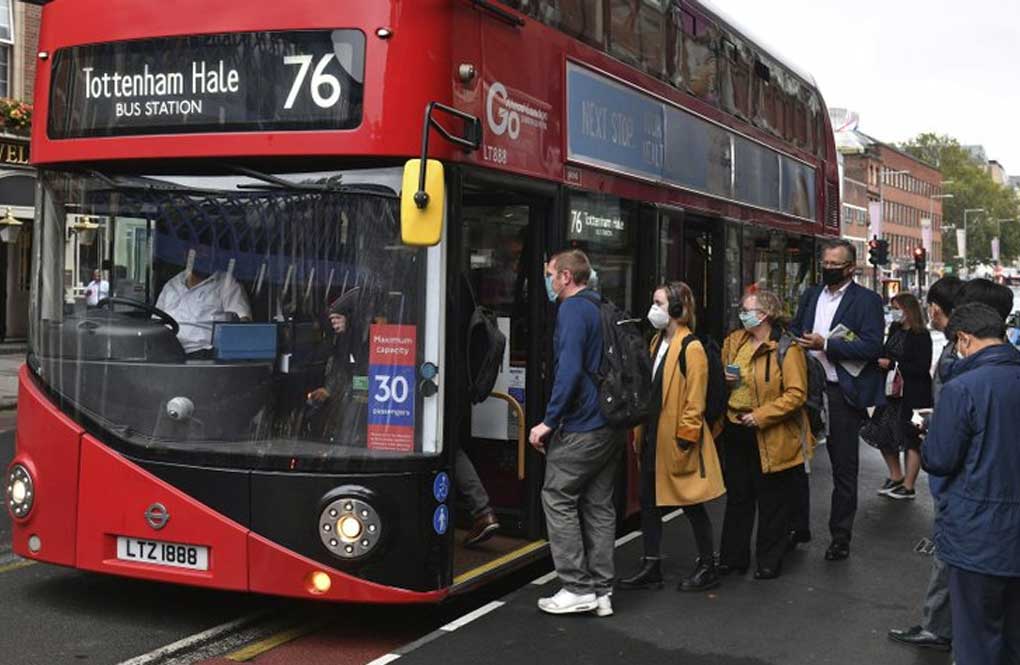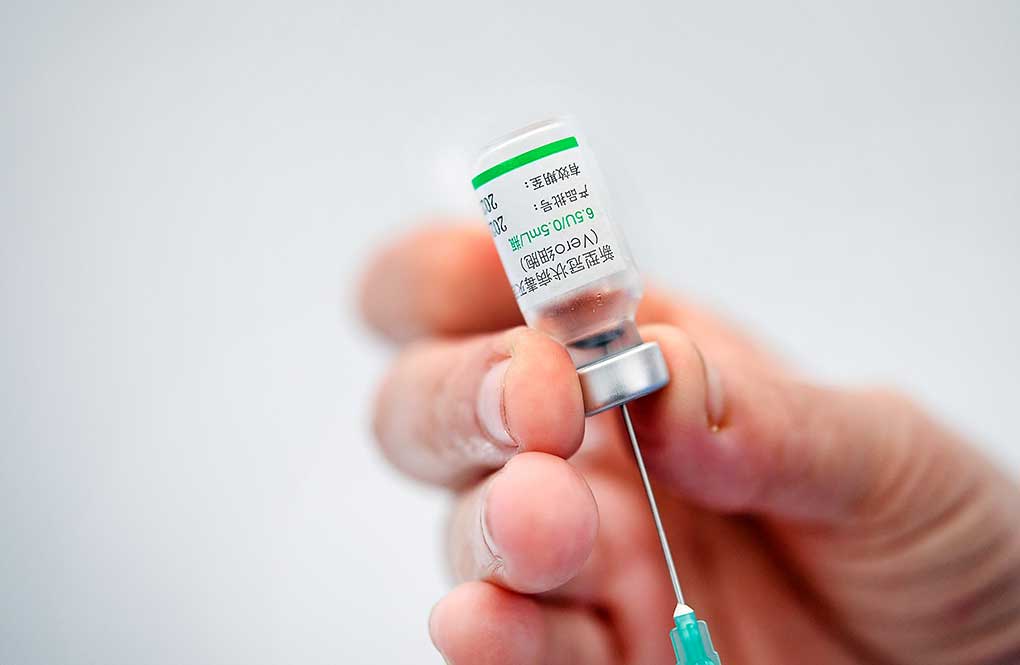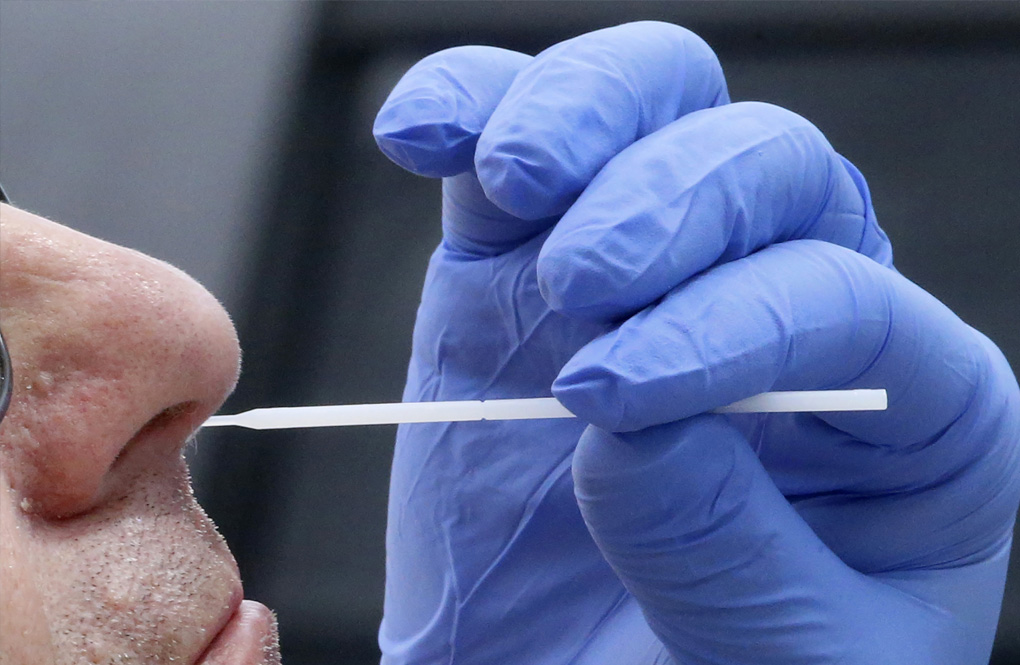Authorities in Sweden, Poland, the United Kingdom and the United Arab Emirates have announced an easing in coronavirus restrictions as the global number of infections since the start of the pandemic surpassed 400 million.
Sweden scrapped almost all of its few restrictions on Wednesday and stopped most testing for COVID-19.
Sweden’s government announced last week it would scrap the remaining restrictions – effectively declaring the pandemic over – as vaccines and the less severe Omicron variant have cushioned severe cases and deaths.
“As we know this pandemic, I would say it’s over,” Minister of Health Lena Hallengren told Dagens Nyheter.
“It’s not over, but as we know it in terms of quick changes and restrictions it is,” she said, adding that COVID-19 would no longer be classified as a danger to society.
As of Wednesday, bars and restaurants will be allowed to stay open after 11pm again and with no limits on the number of guests.
The country has halted wide-scale testing for COVID-19 even among people showing symptoms of an infection, putting an end to the mobile city-square tent sites, drive-in swab centres and home-delivered tests that became ubiquitous during the pandemic and provided essential data for tracking its spread.
The move puts Sweden at odds with most of Europe but some experts say it could become the norm as costly testing yields fewer benefits with the easily transmissible but milder Omicron variant and as governments begin to consider treating COVID-19 like they do other endemic illnesses.
“We have reached a point where the cost and relevance of the testing is no longer justifiable,” Swedish Public Health Agency chief Karin Tegmark Wisell said this week.
“If we were to have extensive testing adapted to everyone who has COVID-19, that would mean half a billion kronor a week (about $A77 million) and 2 billion a month,” Tegmark Wisell added.
Starting on Wednesday, only health care and elderly care workers and the most vulnerable will be entitled to free PCR testing if they are symptomatic while the rest of the population will simply be asked to stay home if they show symptoms that could be COVID-19.
Antigen tests are readily available for purchase in supermarkets and pharmacies but those results are not reported to health authorities.
In the UK, instead of dropping all testing requirements, authorities are relying on testing in addition to vaccination to help enable people to return to normal life.
The government has also made rapid tests freely available and encouraged people to test themselves before potentially risky gatherings, hoping that knowing their status will curb COVID-19 transmission.
On Wednesday, UK Prime Minister Boris Johnson signalled his intention to remove the need to isolate after a positive COVID-19 test at the end of February.
People would still be advised to self-isolate.
The United Arab Emirates will gradually lift restrictions as the number of infections and hospitalisations has gone down, the state news agency WAM reported on Wednesday.
Venues will be allowed to function at maximum capacity by mid-February, it said.
The oil-rich federation has one of the world’s highest vaccination rates.
Meanwhile, the Polish health minister said on Wednesday that an end to the COVID-19 pandemic was in sight as he announced a cut to the isolation period for infected people and looser quarantine rules.
Poland registered record daily case numbers as recently as two weeks ago but with infections falling and the effects of Omicron appearing to be milder than previous variants, authorities believe the time is right for a lighter touch.
“We are dealing with the beginning of the end of the pandemic,” Adam Niedzielski told a news conference.
“In February, declines in infections should be relatively large.”
In comments published earlier on Wednesday, Niedzielski said Poland may lift its COVID-19 restrictions in March if daily infection numbers kept falling at the current rate.
Global COVID-19 cases surpassed 400 million on Wednesday, according to a Reuters tally.
But World Health Organisation chief Tedros Adhanom Ghebreyesus cautioned that “diseases know no borders” and the Omicron variant has shown that “any feeling of safety can change in a moment”.
The WHO’s weekly epidemiological report showed that case counts fell 17 per cent worldwide over the last week, including a 50 per cent decline in the US, while deaths globally declined 7 per cent.
“Depending on where you live, it might feel like the COVID-19 pandemic is almost over, or, it might feel like it is at its worst,” Tedros said.
“But wherever you live, COVID isn’t finished with us.”
“We know this virus will continue to evolve, but we are not defenceless,” he added.
“We have the tools to prevent this disease, test for it and to treat it.”













